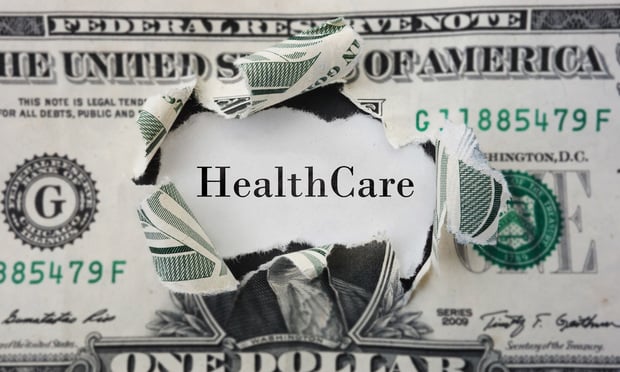Most Americans don’t understand exactly what’s in their healthinsurance plan, but they tend to have a better idea when theymanage some of the costs with a health savings account, according to a newreport from HSA Bank.
|For the report, “Health Plan Professionals Envision HSAs and CDH inFuture Healthcare System,” the bank surveyed 326 health planprofessionals and found that the majority of respondents eitherdisagreed (39 percent) or somewhat disagreed (32 percent) with thestatement: “In general, Americans with health plan coverageunderstand how it works.”
|However, the survey also found that 45 percent of respondentsbelieve when individuals have an HSA-based consumer-directed healthplan rather than a non-HSA-based plan, their understanding of theirhealth plan coverage improves.
|“These findings reinforce the premise that consumer-directedhealth care makes Americans better health care consumers byimproving the way they manage their health and health carespending, due to a greater understanding of their plan,” the studysays. “While there is significant improvement that needs to bemade to American’s understanding of health care and plan coverage,HSAs and CDH plans, when combined with ongoingeducation and tools that compare cost, quality and value couldclose this gap.”
|While the majority of respondents (56 percent) believe “reducedcosts for individuals and their families” is the most importantimprovement that should be made in health care reform, a quarter ofrespondents (26 percent) indicated “increased personal control” asthe second most important improvement to health carereform.
|“Increased personal control is the premise of consumer-directedhealth care and HSAs, enabling consumers to select providers andservices based on cost, quality and value,” the studysays.
|Related: Whenit comes to CDHPs, brokers and employers face knowledgegaps
|When the respondents were asked about enhancements to theexisting HSA structure that would be most valuable toconsumers, the top three survey responses were:
expanding the definition of high-deductible health plans toallow more Americans to benefit from the triple tax advantage whenfunds are used to pay for to IRS-qualified medical expenses;
increasing the funding limits to allow consumers to cover theentire out-of-pocket exposure of the health plan with HSA funds, aswell as to provide a savings vehicle to grow funds needed to payfor health care expenses in retirement;
and creating a Medicare HSA option to allow Americans enrolledin Medicare to open and fund a tax-advantaged account to help thempay and save for health care in retirement. Currently, individualsenrolled in Medicare are unable to contribute to an HSA.
“The value of consumer-directed health care and specificallyHSAs in the future health care system can be seen in the responsesfrom health plan professionals who are seeking increasedpersonal control for consumers, greater consumer understanding ofplan coverage, and improvements to
|HSAs that would simplify the accounts and expand access forAmericans,” the authors conclude.
Complete your profile to continue reading and get FREE access to BenefitsPRO, part of your ALM digital membership.
Your access to unlimited BenefitsPRO content isn’t changing.
Once you are an ALM digital member, you’ll receive:
- Critical BenefitsPRO information including cutting edge post-reform success strategies, access to educational webcasts and videos, resources from industry leaders, and informative Newsletters.
- Exclusive discounts on ALM, BenefitsPRO magazine and BenefitsPRO.com events
- Access to other award-winning ALM websites including ThinkAdvisor.com and Law.com
Already have an account? Sign In
© 2024 ALM Global, LLC, All Rights Reserved. Request academic re-use from www.copyright.com. All other uses, submit a request to [email protected]. For more information visit Asset & Logo Licensing.








